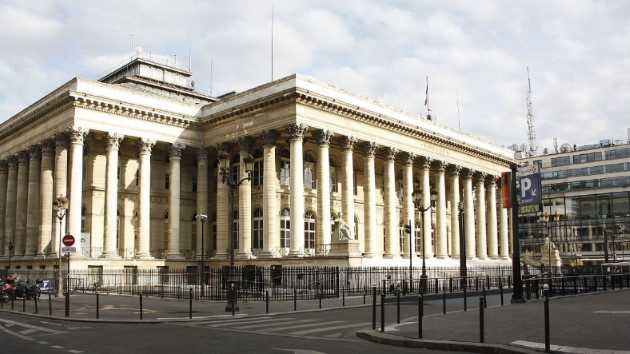(CercleFinance.com) – The Paris Stock Exchange should continue its correction on Monday morning, the threat of an energy shock due to soaring oil prices continuing to keep investors away from risky assets.
Around 8:15 a.m., the ‘future’ contract on the CAC 40 – due March – fell by 142 points to 5,917 points, which means that the Parisian index could sink the threshold of 6,000 points from the opening.
Geopolitical uncertainties and their corollary, volatility, have made a strong comeback over the past ten days and should continue to dictate the trend over the coming sessions.
It is energy, in particular, which remains at the heart of investors’ concerns, while the United States and the European Union are now considering a ban on Russian oil imports.
As an immediate consequence, the two crude oil benchmark contracts are up sharply this morning.
Brent rose 9.7% to $129.6 a barrel, while US light crude (West Texas Intermediate, WTI) soared 8.7% to $125.7, a new high since the crisis 2008 financial.
Friday, the announcement of Russian strikes against the nuclear power plant in Zaporizhia, the largest in Europe, had already caused the CAC 40 index to fall by 5%, its largest daily decline since the start of the Ukrainian conflict.
Over the past week as a whole, the Parisian market lost nearly 10%.
In this tense context, investors therefore prefer to increase their exposure to commodities, the only asset class to have generated positive returns since the start of the crisis.
The unrest in Ukraine and soaring energy prices are now casting a shadow over the outlook for inflation and growth, which is mechanically penalizing stock market valuations.
Analysts at Capital Economics announced on Friday that they have lowered their growth forecast for the euro zone this year, now expected at 2.8% and no longer at 3.5% as before.
The recent drop in equity markets has however created some buy signals and some strategists are talking about the possibility of an upcoming stock market rebound.
“During the Cuban Missile Crisis of 1962 (…), US equity markets fell 22% in the space of three months, before regaining their peaks in 12 months”, recalls- we at Raymond James.
The American asset manager also recalls the episode of the Gulf War in 1990, which saw Wall Street erase a drop of 20% in less than four months despite falling back into recession.
Given all these constraints, the task promises to be complicated for the European Central Bank (ECB), which is due to meet its Governing Council this week.
For Nadège Dufossé, manager at Candriam, the ECB will have to engage in ‘a delicate balancing act’ given the high level of inflation, which should lead it to be cautious in changing its monetary tone.
The central bank could thus evoke the prospect of an imminent end to its ‘historic’ program of asset purchases (APP), without however providing a precise timetable given the growing uncertainty due to the conflict.
Copyright © 2022 CercleFinance.com. All rights reserved.
Did you like this article ? Share it with your friends with the buttons below.




